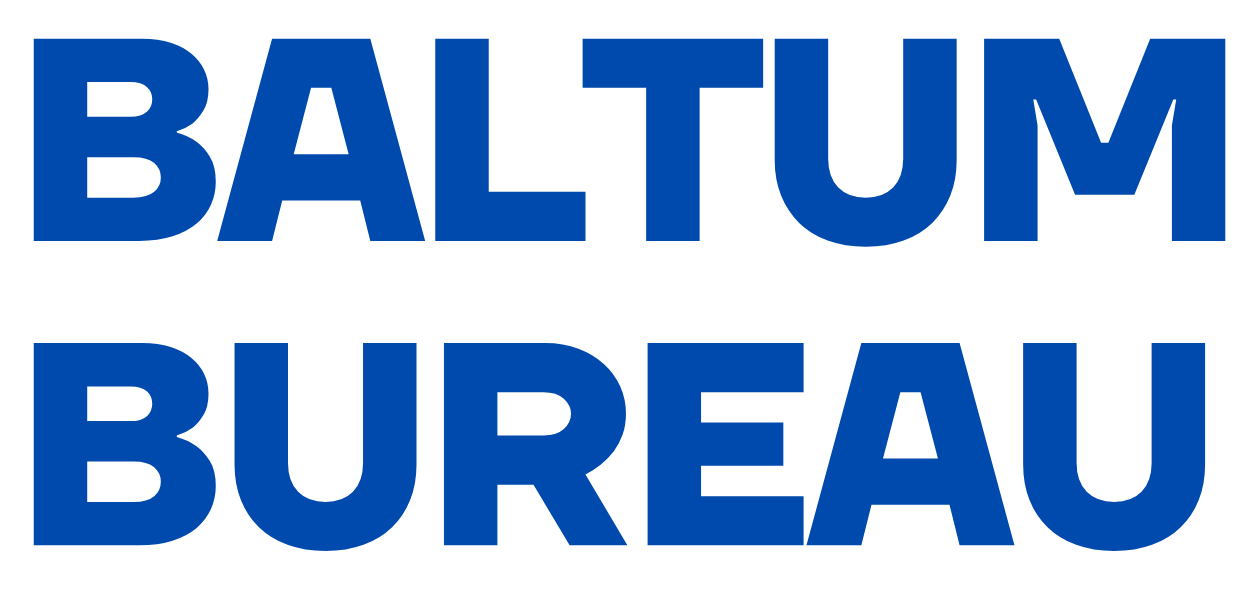YOUR CERTIFICATION PARTNER
YOUR CERTIFICATION PARTNER
Friendly and professional support throughout your
ISO journey.
Our team of certification and training engaged experts are ready to help you.
International recognition
Baltum boasts its own accreditation and also collaborates with esteemed certification bodies to deliver exceptional services. Our group of companies is accredited by the International Accreditation Service (IAS) in the United States, Accreditation Service of Certification Bodies (ASCB) and National Accreditation Body of the United Kingdom (UKAS).
This international recognition and our strategic partnerships solidify our commitment to maintaining the highest standards in management system assessments and ISO certification services, ensuring our clients receive unparalleled quality and expertise in our offerings.
Our services
With extensive experience and in-depth industry knowledge, our specialists collaborate with you to provide customized solutions and guidance throughout the certification process.
Trust in our expertise to ensure your organization's compliance with international standards and unlock the full potential of your management systems.
- ISO 9001:2015.
Quality management systems.ISO 9001:2015 sets the global standard for Quality Management Systems (QMS), providing a framework for organizations to consistently deliver high-quality products and services. As the most widely adopted QMS standard, ISO 9001 has been implemented by over 1 million organizations in 178 countries, demonstrating its effectiveness in driving continuous improvement and customer satisfaction. Achieving ISO 9001:2015 certification signifies your organization's commitment to quality and excellence, enhancing your credibility in the marketplace. - ISO/IEC 27001:2022.
Information Security Management Systems.ISO/IEC 27001:2022 sets the international standard for Information Security Management Systems (ISMS), offering a comprehensive framework that ensures the confidentiality, integrity, and availability of information. By adopting ISO/IEC 27001:2022, organizations can effectively manage and mitigate risks to their information assets, safeguarding critical data while maintaining legal compliance. Achieving ISO/IEC 27001:2022 certification demonstrates your organization's dedication to information security, bolstering the trust of customers, partners and stakeholders. -
ISO/IEC 27701:2019.
Data Compliance Management System.
ISO/IEC 27701:2019 serves as an extension to the ISO 27001 standard, specifically addressing data privacy and providing guidance for organizations striving to comply with regulations like the GDPR and other data privacy requirements. Implementing ISO 27701:2019 helps businesses establish comprehensive data privacy management systems, enabling them to safeguard sensitive information, mitigate risks, and demonstrate their commitment to maintaining the highest standards of data protection. Achieving ISO 27701:2019 certification enhances your organization's credibility and fosters trust among customers, partners, and stakeholders. - ISO 17100:2015.
Translation service.ISO 17100:2015 is the internationally recognized standard for translation service providers, outlining the crucial processes and best practices for delivering high-quality translation services. The standard establishes and defines the qualifications of translators, the technical resources they employ, and the quality of service clients can expect. By implementing ISO 17100:2015, translation companies demonstrate their commitment to maintaining a consistent, reliable, and professional service, ensuring customer satisfaction and fostering trust in the global marketplace. Achieving ISO 17100:2015 certification sets your translation business apart, signaling your dedication to upholding the highest industry standards. - ISO 22000:2018.
Food Safety Management Systems.ISO 22000 combines and supplements the core elements of ISO 9001 and HACCP to provide an effective framework for the development, implementation, monitorization and continual improvement of a documented Food Safety Management System (FSMS) within the context of the organization’s overall business risks. - ISO 18587:2017
Translation services. Post-editing of machine translation output.ISO 18587 is an international standard that provides the requirements against which claims of conformity can be made for full post editing of machine translation output and an annex that describes a light post editing of machine translation output service. It provides requirements for the process of full, human post-editing of machine translation output and post-editors’ competences.
Six benefits of working with us.
What our customers tell us
-
Professional and friendly
Our customer-centric approach prioritizes your success, ensuring that our team is always approachable and supportive, guiding you throughout the certification process.
1 - ExpertiseOur team of highly skilled and experienced auditors and certification experts bring unparalleled industry knowledge to guide and support your organization through the certification process.2
- CustomizationWe believe in tailored solutions that address the unique needs of your business. Our flexible approach ensures that our services align with your specific requirements, delivering maximum value and effectiveness.3
-
International Recognition
Accredited by leading global accreditation bodies, our certifications carry weight and credibility on the international stage, enhancing your organization's reputation and fostering trust among customers and stakeholders.
4 -
Comprehensive Services
With a broad range of certifications spanning Quality, Health, Safety, Information Security, and Environment, we offer a one-stop solution for all your management system assessment and ISO certification needs.
5 -
Long-Term Partnership
We view our relationship with clients as a long-term partnership. Our ongoing support and guidance are designed to help you continually improve your management systems, fostering growth, and driving success for your organization.
6
YOUR CERTIFICATION PARTNER
As a partner and certification body of internationally recognized certification bodies such as Swiss Approval (Switzerland), Unicert (Germany), URS (United Kingdom), and GCERTI (USA), we offer a comprehensive range of certifications, from public standards to more customized schemes, in the fields of IT, Crypto, Quality, Health, Safety, Information Security, and Environment.
Our aim is to provide a certification service that is cost-effective, flexible, and tailored to the individual needs and knowledge of our customers. We pride ourselves on our highly qualified auditors and international expertise, who work closely with our clients to deliver value beyond certification.
Request certification cost
Georgia: 5 Nikoladze St., Tbilisi, 0179
E-mail: info@baltumburoo.com, georgia@baltumburoo.com
Phone: +995 574 008 070
United Kingdom: Dalton House, 60 Windsor Avenue, London
Estonia: Pärnu mnt 105, Tallinn
E-mail: info@baltumburoo.com
Additionally, we have a team of auditors located in various countries who can provide local expertise and knowledge of specific regulations and cultural norms to ensure that the certification process is tailored to the unique needs of each organization. Whether you require remote or on-site auditing, we are committed to delivering high-quality certification services that meet your specific requirements.
ISO's mission is to develop and promote international standards that facilitate trade, exchange, and cooperation between businesses, governments, and other organizations. The standards created by ISO cover a wide range of topics, including quality management, environmental management, information security, occupational health and safety, and many others.
By achieving ISO certification, businesses can demonstrate their compliance with internationally recognized standards, ensuring that their products, services, and processes are of high quality, safe, and efficient. ISO certification can also improve a company's reputation, increase customer satisfaction, and help to break down barriers to international trade.
In summary, ISO plays a vital role in developing and promoting international standards that bring coordination and unification to industries worldwide. Investing in ISO certification can benefit businesses by keeping them up to date with the latest specifications and practices, improving their international trade prospects and reputation.
ISO 14001 (Environmental Management Systems (EMS)) is the internationally recognized standard for Environmental Management Systems (EMS). By implementing this standard, organizations can systematically manage their environmental responsibilities, minimize their environmental footprint, and comply with applicable laws and regulations. ISO 14001 provides a framework for organizations to identify, monitor, and control their environmental impacts while continually improving their environmental performance.
ISO 45001 (Occupational Health and Safety Management Systems (OHSMS)) is the international standard for Occupational Health and Safety Management Systems(OHSMS). It provides a framework for organizations to identify and control health and safety risks, prevent accidents and work-related injuries, and improve employee well-being. By achieving ISO 45001 certification, organizations demonstrate their commitment to protecting the health and safety of their employees, fostering trust among customers, partners, and stakeholders. The standard requires organizations to implement a systematic approach to identifying, assessing, and controlling hazards and risks in the workplace, while continuously improving their occupational health and safety performance.
ISO 22000 (Food Safety Management Systems (FSMS)) is the international standard for Food Safety Management Systems (FSMS), providing a framework for organizations to ensure the safety and quality of their food products and minimize the risks of foodborne illness. The standard requires organizations to identify and assess potential food safety hazards, implement control measures to prevent and mitigate these hazards, and continuously monitor and improve their FSMS.
ISO 50001 (Energy Management Systems (EnMS)) is the international standard for Energy Management Systems(EnMS), providing a framework for organizations to effectively manage their energy use, reduce their energy costs, and minimize their environmental impact. ISO 50001 is applicable to organizations of all sizes, industries, and sectors, and it aligns with other internationally recognized standards, such as ISO 9001 and ISO 14001. By implementing an effective EnMS based on ISO 50001, organizations can enhance their operational efficiency, reduce their energy costs, and minimize their environmental impact, ultimately ensuring sustained success and stakeholder trust.
ISO 22000:2018 (Food Safety Management Systems) combines and supplements the core elements of ISO 9001 and HACCP to provide an effective framework for the development, implementation, monitorization and continual improvement of a documented Food Safety Management System (FSMS) within the context of the organization’s overall business risks.
ISO 22301 (Business Continuity Management Systems(BCMS)) is the international standard for Business Continuity Management Systems (BCMS), providing a framework for organizations to minimize disruptions, respond effectively to unexpected events, and maintain business continuity in the face of adversity. By achieving ISO 22301 certification, organizations demonstrate their commitment to maintaining critical business functions and minimizing the impact of disruptions, ensuring customer satisfaction, and maintaining stakeholder trust. The standard requires organizations to identify and assess potential risks, develop and implement business continuity plans, and continually monitor and improve their BCMS.
ISO 37001 (Anti-Bribery Management Systems (ABMS)) is the international standard for Anti-Bribery Management Systems (ABMS), providing a framework for organizations to prevent, detect, and address bribery and corruption risks within their operations and supply chains. By achieving ISO 37001 certification, organizations demonstrate their commitment to combatting bribery and fostering ethical business practices, fostering trust among customers, partners, and stakeholders. The standard requires organizations to implement effective ABMS, including risk assessments, due diligence, policies and procedures, training, reporting, and monitoring.
ISO 28000 (Supply Chain Security Management Systems (SCSMS)) is the international standard for Supply Chain Security Management Systems (SCSMS), providing a framework for organizations to protect their supply chains from security risks and ensure the safe and secure movement of goods and materials. The standard requires organizations to identify and assess potential security risks, develop and implement security plans and procedures, and continuously monitor and improve their SCSMS.
ISO 41001 (Facility Management Systems (FMS)) is the international standard for Facility Management Systems (FMS), providing a framework for organizations to effectively manage their facilities and optimize their use of resources. By achieving ISO 41001 certification, organizations demonstrate their commitment to enhancing facility management and improving the performance of their facilities, fostering trust among customers, partners, and stakeholders. The standard requires organizations to identify and assess the needs and expectations of their facilities, develop and implement facility management plans and processes, and continuously monitor and improve their FMS.
ISO/IEC 27701:2019 (Data Compliance Management System) serves as an extension to the ISO 27001 standard, specifically addressing data privacy and providing guidance for organizations striving to comply with regulations like the GDPR and other data privacy requirements. Implementing ISO 27701:2019 helps businesses establish comprehensive data privacy management systems, enabling them to safeguard sensitive information, mitigate risks, and demonstrate their commitment to maintaining the highest standards of data protection. Achieving ISO 27701:2019 certification enhances your organization's credibility and fosters trust among customers, partners, and stakeholders.
ISO/IEC 20000-1 (IT Service Management (ITSM)) is the internationally recognized standard for IT Service Management (ITSM), providing a framework for organizations to effectively manage and deliver IT services that meet the needs of their customers. The standard sets out best practices and guidelines for the planning, implementation, management, and continuous improvement of IT services, ensuring the efficient use of resources, minimized risks, and increased customer satisfaction.
ISO/IEC 29110 (Systems and software engineering — Lifecycle profiles for Very Small Entities (VSEs)) is an international standard designed specifically to address the unique needs of small and very small entities (VSEs) involved in software development and systems engineering. The standard provides a tailored framework and set of guidelines for VSEs to improve and optimize their project management, development, and delivery processes, ensuring the consistent quality of their software and systems.
PCI DSS (PCI DSS (Payment Card Industry Data Security Standard) certification is a mandatory requirement set by international payment systems such as Visa, MasterCard, MIR, American Express, Discover, and JCB. Organizations involved in the processing, transfer, or storage of payment card data must adhere to PCI DSS to ensure the security and confidentiality of sensitive financial information. Compliance with this standard is verified through an annual certification audit, demonstrating the organization's commitment to maintaining robust security measures and safeguarding customer data in accordance with industry best practices.
SOC 2 (Service Organization Control 2) is an auditing process designed to ensure service providers securely manage data, protecting both your organization's interests and the privacy of its clients. For businesses with a strong focus on security, SOC 2 compliance serves as a baseline requirement when evaluating SaaS providers. By adhering to SOC 2 standards, service providers demonstrate their commitment to implementing and maintaining robust security controls and data protection measures, instilling confidence in clients and fostering trust in their services.
General Data Protection Regulation (GDPR) is a comprehensive data privacy regulation that applies to companies operating within the European Union, as well as organizations outside the EU that provide goods or services (free or paid) to EU citizens or monitor their behavior. GDPR compliance encompasses a wide range of data monitoring activities, from basic cookie tracking during website visits to more advanced tracking methods. By adhering to GDPR requirements, organizations demonstrate their commitment to safeguarding the personal data of EU citizens, maintaining data privacy, and upholding the highest standards of data protection in a rapidly evolving digital landscape.
California Consumer Privacy Act (CCPA) is a comprehensive data privacy legislation aimed at safeguarding the personal information of California residents. Compliance with the CCPA demonstrates an organization's commitment to upholding the highest standards of data privacy and protection for its customers, fostering trust and promoting transparency in business practices.
Trusted Information Security Assessment Exchange (TISAX) is a standardized assessment and exchange mechanism for information security in the automotive industry. Based on the internationally recognized ISO/IEC 27001 standard, TISAX assessments focus on the protection of sensitive information, such as intellectual property and confidential project data.
CryptoCurrency Certification Consortium (C4) is a non-profit organization that provides certifications to professionals who perform cryptocurrency-related services. The organization provides certifications that demonstrate comprehensive knowledge in various disciplines related to cryptocurrency, ranging from basic cryptography to low-level cryptocurrency development. The C4 also establishes cryptocurrency standards that aim to balance openness, privacy, security, usability, and decentralization.
ISO 18841 (Quality Interpreting Services) is an international standard providing the basic requirements for interpreting services, with additional recommendations for best practices. One of a number of interpreting standards, ISO 18841 can be used by language service providers to demonstrate a commitment to provide a high quality interpreting service. The standard includes the definition of basic interpreting principles, basic conditions governing interpreting assignments and the competencies & qualifications of interpreters, as well as three informative annexes.
ISO 18587 (Translation services. Post-editing of machine translation output) is an international standard that provides the requirements against which claims of conformity can be made for full post editing of machine translation output and an annex that describes a light post editing of machine translation output service. It provides requirements for the process of full, human post-editing of machine translation output and post-editors’ competences.
EU MDR compliance compliance requires organizations to demonstrate adherence to the new regulations, which encompass aspects such as risk management, clinical evaluations, post-market surveillance, and unique device identification (UDI) systems. The regulation also introduces a more robust classification system for medical devices, making it essential for manufacturers to carefully review their products and comply with the appropriate requirements. By adhering to EU MDR requirements, organizations can ensure their medical devices meet the highest standards of safety and efficacy, while maintaining access to the European market.
Health Insurance Portability and Accountability Act (HIPAA) is a comprehensive US legislation designed to protect the privacy and security of patient health information. Compliance with HIPAA ensures that organizations implement robust safeguards to maintain the confidentiality, integrity, and availability of PHI, while also providing patients with greater control over their personal health information.
Our team of auditors and experts are located in various countries, allowing us to provide local expertise and knowledge of specific regulations and cultural norms.
Additionally, our entire certification process can be carried out remotely, making it a convenient and cost-effective option for organizations that operate globally or have facilities in multiple locations. If you are interested in our services, please don't hesitate to contact us to discuss your certification needs.
Our mission is to provide high-quality certification services that go beyond simply certifying organizations but also bring real value to their business by developing a cost-effective and flexible approach that is tailored to the individual needs and knowledge of our clients.
Our team of highly qualified auditors and experts are dedicated to providing the best possible service to our clients, using the latest technology and methodologies to deliver efficient and effective results. With a focus on customer satisfaction, we strive to work with our clients to develop their businesses and achieve real commercial benefits from their management system investment.
At Baltum Bureau, we understand that each organization is unique, with its own set of challenges and requirements. That's why we take a customized approach to our certification services, adapting our approach to the individual needs and knowledge of our clients. With our commitment to quality and customer satisfaction, we are confident that we can provide the certification services that your organization needs to succeed.
Our aim is to provide a certification service that not only certifies but also benefits our clients with a cost effective and flexible approach that is adapted to the individual needs and knowledge of our customers.
The exact requirements and processes for certification will vary depending on the standard being certified to, but generally, the company will need to:
- Develop and implement a management system that meets the requirements of the standard being certified to.
- Conduct an internal audit to ensure the management system is effectively implemented and identify any areas for improvement.
- Engage an accredited certification body, such as Baltum Bureau, to conduct an external audit of the management system to verify compliance with the standard requirements.
- Address any non-conformities identified during the external audit and implement any corrective actions as necessary.
- Maintain the management system and undergo annual surveillance audits to maintain certification.
It's important to note that the certification process is tailored to the specific needs of each organization and is designed to ensure that the company's management system meets the requirements of the standard(s) being certified to. Our team of auditors and experts work closely with our clients throughout the certification process to provide guidance, support, and help organizations achieve their certification goals.






